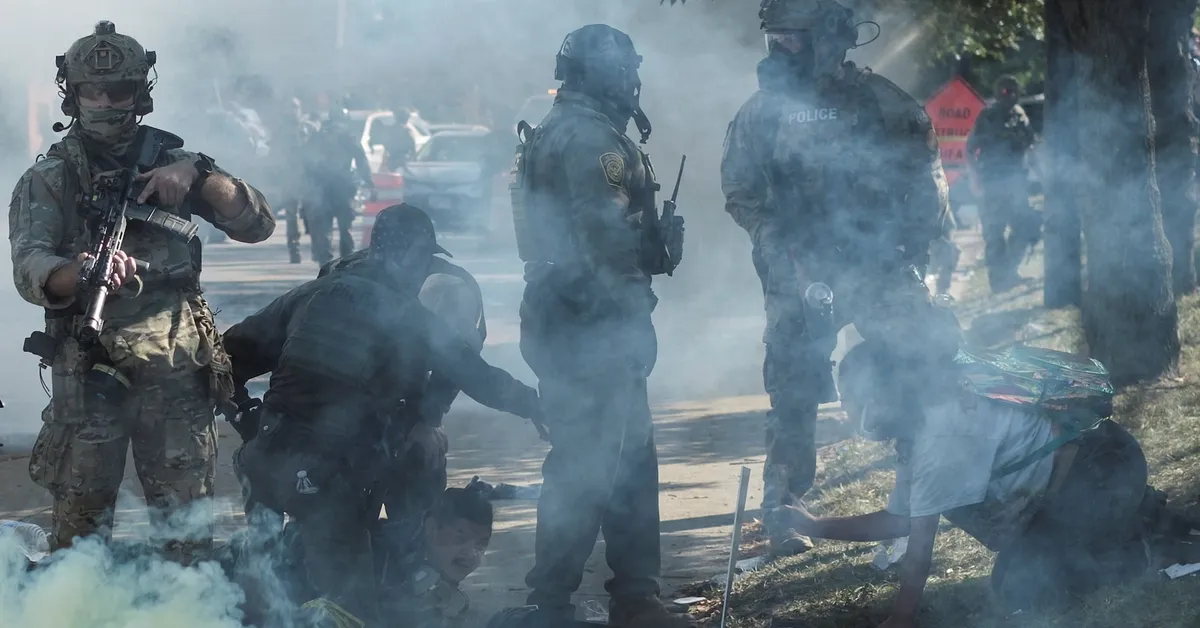
On Saturday, October 4, 2023, a serious confrontation took place in Chicago when U.S. Border Patrol personnel shot an armed woman during a clash with protesters. This incident occurred on the city's southwest side, where federal immigration agents, including those from U.S. Immigration and Customs Enforcement (ICE), faced off against a large group of demonstrators. According to a spokesperson from the Department of Homeland Security, the altercation escalated when protesters, including the woman, rammed vehicles into those used by ICE.
The woman, a U.S. citizen whose identity has not been disclosed, drove herself to the hospital following the shooting. As of now, there is no additional information regarding her condition. Thankfully, no law enforcement officers sustained serious injuries during this incident, which highlights the volatile nature of the protests surrounding immigration enforcement.
In response to the escalating situation, ICE agents resorted to using pepper spray and rubber bullets during heated exchanges with protesters. U.S. Secretary of Homeland Security Kristi Noem announced via a post on X that she would be deploying additional special operations units to manage the unrest in Chicago’s Brighton Park neighborhood.
Illinois Governor JB Pritzker, a Democrat, expressed his concerns on the same day, revealing that he was pressured by Republican President Donald Trump to activate the state’s National Guard. Pritzker condemned this demand, stating, “It is absolutely outrageous and unAmerican to demand a Governor send military troops within our own borders and against our will.”
The protests in Chicago are part of a larger movement opposing the increased federal immigration presence. In fact, demonstrators have been staging repeated protests to voice their dissent against the actions of federal agents. Just the day before the shooting, police clashed with hundreds of protesters outside an ICE facility located in the Chicago suburb of Broadview.
During these protests, demonstrators have attempted to block ICE vehicles from transporting detainees into the facility, only to be met with aggressive responses from ICE agents. These confrontations have drawn comparisons to similar heavy-handed policing seen in other Democratic-run cities, including New York, Los Angeles, Washington, D.C., and Portland, Oregon.
The ongoing unrest in Chicago reflects a broader national debate about immigration policies and the role of federal authorities in local communities. As tensions continue to rise, the influence of federal law enforcement on local protests remains a critical issue that communities across the United States are grappling with.